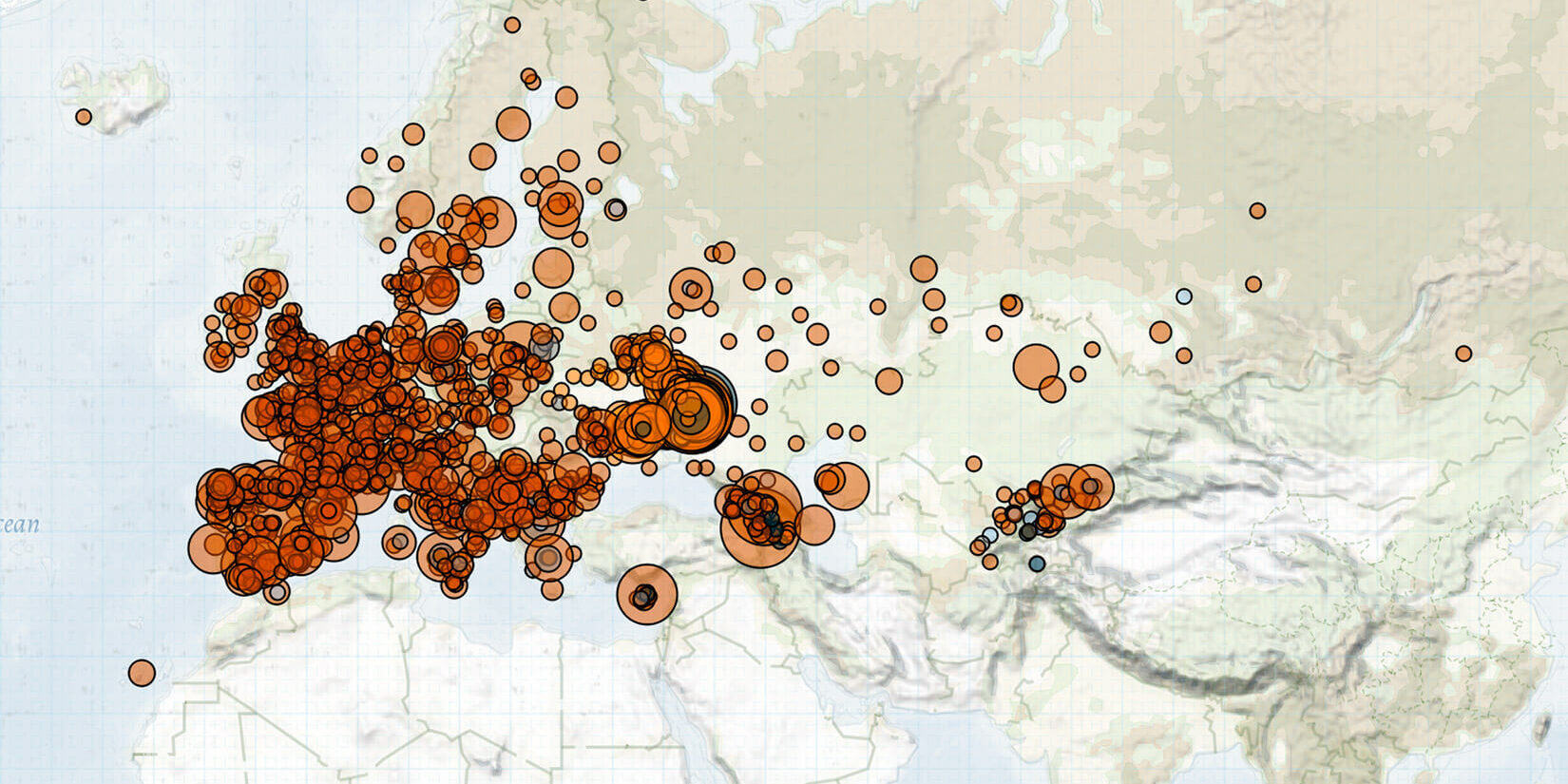Last week in Europe, Caucasus, and Central Asia, the military invasion of Ukraine continued with heavy fighting in the eastern and southern regions. The invasion continues to drive demonstration activity in solidarity with Ukraine. Attacks against police offices and private property continued in Russia against the backdrop of mass arrests of anti-war activists. A deadly clash broke out on the Kyrgyz-Tajik border. Demonstrations against fuel price hikes and LGBT+ discrimination continued across Europe. Meanwhile, demonstrations in solidarity with asylum seekers and migrant workers were held in the United Kingdom and Italy, respectively.
In Ukraine, fighting between Russian and Ukrainian forces continued last week, as Russian forces continued their attempts to seize Severodonetsk and establish full control over the Luhansk region. The Russian military blew up the bridge connecting Severodonetsk and Lysychansk, complicating the resupply of Ukrainian forces and the evacuation of civilians (The Telegraph, 12 June 2022). Intense fighting also continued in the Kharkiv region, where Russian forces attempted to push the Ukrainian army away from the Russian-Ukrainian border and renewed their offensive toward the Donetsk region south of Izium (ISW, 17 June 2022; Kyiv Independent, 18 June 2022). For the second consecutive week, the Ukrainian air force struck several Russian positions and ammunition depots in the Kherson region, inflicting losses on the Russian side (24 Channel, 17 June 2022).
Russian forces continued shelling civilian infrastructure in the southern and eastern regions of Ukraine last week, killing dozens of civilians.1Fatality numbers are frequently the most biased and poorly reported component of conflict data; they can vary considerably and are often the subject of debate given the strategic incentives to over- or underestimate these numbers, as well as the significant logistical difficulties in collecting accurate data, among other factors (for more, see this piece by ACLED in Washington Post, 2 October 2017). Russian forces also launched missiles at several western regions of the country, albeit most of these attacks were intercepted by Ukrainian air defense (NV, 14 June 2022; Ukrainska Pravda, 15 June 2022). Additionally, at least six civilians were killed by mines and other remote explosives in the Odesa, Kherson, and Sumy regions. Meanwhile, two more rape incidents perpetrated by Russian soldiers were reported in the Zaporizhia region last week. The actual extent of Russian sexual violence in Ukraine is likely much higher than that which has been reported but remains hard to verify (Democracy Now, 9 June 2022).
Demonstrations in solidarity with Ukraine took place across Europe last week, with rallies recorded in Armenia, Austria, Belgium, Bulgaria, Georgia, Germany, Italy, Latvia, Lithuania, Moldova, North Macedonia, Norway, Poland, Portugal, Russia, and Serbia.
In Russia, unknown groups carried out at least five attacks on police offices or private property with pro-war symbols across the country last week. Attacks included Molotov cocktail attacks against a Federal Security Service’s office in Krasnodar and a police office in Gedzhukh, and the burning of a car in Nizhny Novgorod that belonged to the founder of a foundation that collects assistance for Russian forces fighting in Ukraine. This violence contributed to the 46% increase in violence in Russia in the past month relative to the past year flagged by ACLED’s Conflict Change Map, which first warned of increased violence to come in the country in the past month. Meanwhile, in Moscow, authorities arrested around 50 activists who had previously taken part in anti-war protests to prevent them from organizing demonstrations or protests coinciding with Russia Day — the country’s national holiday — on 12 June (RFE/RL, 12 June 2022). Despite the preventive arrests, several anti-war one-person pickets were held on Russia Day in the capital; these protesters were also arrested (Activatica, 12 June 2022).
Less than two weeks since the last clash, another deadly firefight took place on the disputed border between Kyrgyzstan and Tajikistan last week. The incident took place between the Batken region of Kyrgyzstan and the Israfa district of Tajikistan and resulted in the death of a Tajik border guard and the wounding of three others. Authorities of both states accuse the other of initiating the violence (Al Jazeera, 14 June 2022). Much of the 970-kilometer border between the countries is yet to be demarcated (RFE/RL, 14 June 2022), prompting sporadic outbreaks of violence (for more, see this ACLED report on violence along the Kyrgyzstan-Tajikistan border).
LGBT+ pride marches coinciding with LGBT+ Pride Month continued across Europe last week, with demonstrations recorded in Austria, France, Germany, Italy, Norway, Poland, Romania, and Slovenia. Events turned violent in Bordeaux, France, where a group of about 15 men described as far-right activists threw rocks and bottles at marchers and insulted them with homophobic slurs (Actu, 13 June 2022). Meanwhile, clashes occurred between marching LGBT+ community members and counter-demonstrating far-right groups in Austria.
Demonstration activity against rising fuel costs and inflation also continued across the continent last week, with demonstrations recorded in Albania, Cyprus, France, Germany, Luxembourg, Italy, Moldova, Monaco, Poland, Romania, Spain, Sweden, and the United Kingdom.
In the United Kingdom, 11 anti-racist demonstration events were recorded last week against the government’s Rwanda asylum plan. Amid the demonstrations, people gathered outside two immigration centers and two airports in order to physically obstruct and barricade roads and buildings to stop the deportations of migrants, leading to the arrests of 11 demonstrators. The Rwandan asylum plan, announced by the government in April, provides for the deportation of some asylum seekers to Rwanda for the processing of their claims (BBC, 17 June 2022). The first deportation flight to Rwanda was canceled after the European Court of Human Rights ruled that an Iraqi man would have faced “a real risk of irreversible harm” if he remained on the flight (BBC, 15 June 2022).
Meanwhile, in Italy, anti-racism demonstrators gathered in Foggia amid aggressions and violent attacks targeting migrants and foreign day laborers in the area. On 17 June, a group of youths physically assaulted a group of migrant farm workers in Foggia while they were going to work.






